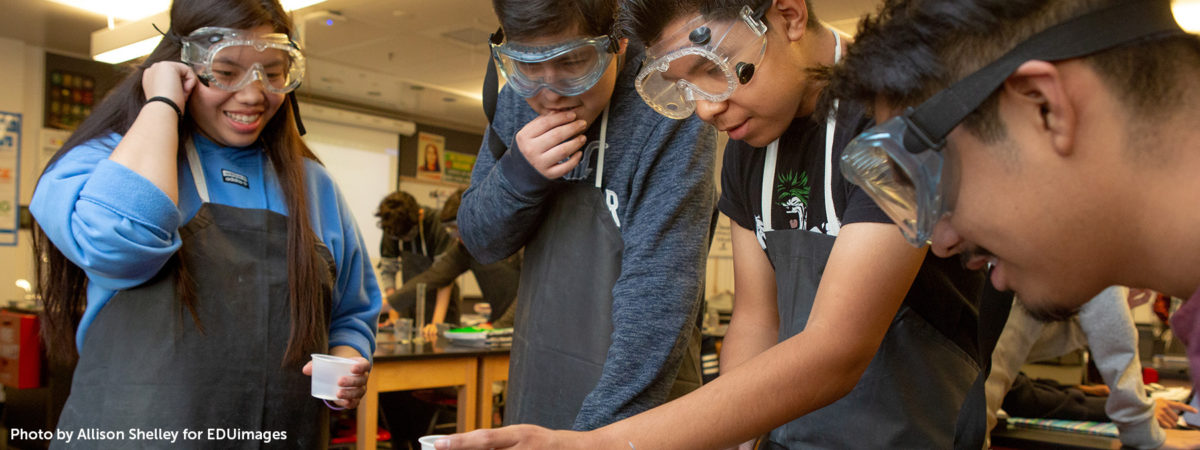
In 2022, members of our network, Abe Lo and Sarah Fick, were recipients of the seed funding we awarded through the previous OpenSciEd Research Agenda. Abe and Sarah proposed to use the funding to deepen their ongoing work with science teachers from Lincoln (Nebraska) Public Schools to learn more about implementing OpenSciEd in their classrooms. With the support of the seed funding, the team was able to pilot a supplemental professional learning experience with the Lincoln teachers to elicit their thinking about crosscutting concepts. In doing so, the research team recognized that teachers needed to better understand the nature of three-dimensional learning and how the crosscutting concepts relate to the three dimensions before they were ready to think deeply about the crosscutting concepts themselves. With this insight and having new data to analyze, Abe and Sarah intend to pursue larger funding opportunities to learn how to better support teachers to enact three-dimensional science curriculum materials.
“The funded research was critical for helping us better understand how teachers and students are taking up existing supports present in the curricular and professional learning materials and conceptualize what additional resources or support might be needed to enhance student learning….We hope to use this research as an evidence base for future proposals.” - Abe Lo, Science Educator, BSCS Science Learning
To date, Digital Promise has published resources such as the OpenSciEd Research Agenda, a logic model, and a synthesis of existing OpenSciEd-related research. Additionally, more than $60,000 in seed funds were awarded to researchers like Abe and Sarah, enabling them to conduct preliminary work needed to inform research proposals focused on assessment, teacher professional learning, materials customizations, and other priority areas.
Following the accomplishments of the Research Agenda work, Digital Promise is now focused on a new task: building an OpenSciEd Research Community to realize impacts from OpenSciEd-enabled research through broad participation by diverse education stakeholders. We’re inviting you to join us to learn from others and share your needs and expertise toward the continued advancement of OpenSciEd research.
We envision the Research Community as a forum for practitioners, policymakers, researchers, and other innovators to connect, collaborate, answer important research questions, and pursue solutions to key problems of practice of interest to the OpenSciEd community. For an educator, this engagement could entail learning about a new approach for OpenSciEd assessment, customization, or teacher professional learning, or collaborating on a proposal with a research team to explore how to better support a historically excluded population of learners. Policymakers and administrators might gain insights into the adoption process through the stories of others shared in the community, supporting the broader scaling of OpenSciEd in a district or state. For researchers, the community can facilitate connections to other researchers with shared interests and complementary expertise, open opportunities to collaborate with practitioner partners, and provide access to new tools and resources to support research. Other innovators, like developers or professional learning providers, might engage with the community in ways that help them build better tools and experiences for educators and students in OpenSciEd classrooms and increase the adoption of these tools.
The roadmap for the OpenSciEd Research Community starts with your participation, and as the community develops, Digital Promise will be carrying out a series of activities to support its members. We will hold events and webinars, continue to develop and publish resources such as research syntheses, instruments, and a District Challenge Map, facilitate connections among participants, and award additional seed funding to research teams interested in building knowledge around OpenSciEd. Join us in building a vibrant community committed to equitable science education and research.